Some retailers are taking their range of healthy foods to another level with functional foods. Here’s how they make them work in their stores
Functional foods. What a seemingly unnecessary pairing of words. But, apparently simply filling us up and giving us energy is no longer a good enough role for food. Foods are now being created containing extra health-giving additives and are being marketed almost solely on this benefit. So now, if a consumer’s on-the-go porridge pot doesn’t have extract of green tea, guarana and added protein concentrate, then they really are missing a trick, or so consumers are being led to believe.
Mintel Global New Products Database (GNPD) research has discovered that between 2011 and 2015 there was a phenomenal 202% increase globally in the number of new food and drink products launched containing the terms “superfood”, “superfruit” or “supergrain”.
In 2015 alone there was a 36% rise in the number of food and drink products launched globally featuring one of these terms. But how can c-store retailers get in on this protein-, antioxidant-, nutrient-pumped action?
One simple way that Scott Graham caters for this trend in his McLeish Inverurie store in Aberdeen is by providing packs of seeds and dried fruit for people to pick up instead of a packet of crisps.
“These healthy snacks have become a huge part of our offering now. In particular, we have seen people moving into the healthy alternatives when it comes to their breakfast on-the-go solution. Whereas people were previously picking up a Kellogg’s bar, they are now choosing a fruit and nut bar or protein bar. We’ve seen a massive lift in sales of these products, to the point where they are now some of our best sellers.”
Jai Singh, of MJ’s Go Local Extra Sheffield, agrees that people’s tastes in breakfast bars are changing, and he ensures to stock the healthier options to appeal to all tastes.
“We stock the healthier bars made with oats, fruit and nuts near the counter alongside the normal sorts of cereal bars such as the Coco Pops bars, and we also site them next to the coffee machine,” he says.
Mehmet Guzel, of Simply Fresh in Bethnal Green, London, says there is one key word that comes to mind when he thinks of functional foods, and that’s ‘protein’.
“Protein is definitely the biggest shopper trend I’ve noticed and we’re selling a lot of products with a high protein value. We sell a lot of the protein powders and smoothies now. We noticed that these were particularly popular in January, when people were on a health kick, so we started to expand the range and their popularity has continued to grow.”
Sports nutrition
According to Mintel GNPD, the number of food and drink products launched in the UK with a high protein claim rose by 97% between 2014 and 2015 and 498% between 2010 and 2015.
Mintel has found that as many as one in four (24%) Brits consume sports nutrition products, rising to 42% of men aged 16-24. UK consumers spent £66m on sports nutrition food and drink products in 2015, up by 27% from 2013 when sales stood at £52m. Almost half (47%) of consumers who use the products say they are part of their everyday diet.
Bimal Patel, who runs a Londis store with his brother Alpesh in Crouch End, London, says the Bounce Protein Balls are some of the best-selling high-protein products in his store. “Anything with protein in sells well; the protein balls, bars, cereals with added protein, such as the new Weetabix Protein Crunch. I’m keeping my eye out for the new Shreddies Max line as well.”
The buzz around protein hasn’t passed Scott by either. “A big trend for breakfast now is protein as this is seen as being the healthiest way to stay full for longer,” he says.
Mehmet sees good sales from beef jerky. He says he sells it at £1.99 a pack and encourages regular buyers to get 10 for the price of eight.
“We originally bought these in as a normal convenience snacking item, but we noticed a lot of people were coming in to get them after the gym, or were just clearly buying them for their nutrition.”
But it’s not all about protein. Shoppers are also going loco for coconut. According to IRI’s InfoScan data, coconut water is now worth almost £60m in value sales alone, up 64% (52 weeks ending 26 March 2016) over the previous year. Coconut oil is also worth more than £14m per year in sales to UK supermarkets and has seen a 112% increase over the previous year.
Coconut still cool
While coconut oil sales are increasing, other oils such as vegetable and sunflower oil are declining. However, sales of yogurts flavoured with coconut are slightly down 4.4%, while new brands such as CoYo and Koko, which are dairy-free alternatives and made from coconut milk, are flying off the shelves.
This suggests that it could be the nutritional benefits of coconut that consumers crave and not always the flavour itself, with the increasing popularity of free-from ranges boosting sales.
Tim Eales, director of strategic insight at IRI, who analysed the data, says: “Certainly, our figures indicate that shoppers are becoming more discerning in their choices, and are not only being influenced by the popularity of Thai-inspired food, but also celebrities praising coconut products for everything from weight loss and hair conditioning, to better brain function and whiter teeth!”
Eales adds that another contributor to this trend could be the fact that Joe Wicks, influential online food and health celebrity, frequently champions coconut oil as a tasty and healthy alternative.
Bimal sells a wide range of coconut juices, as well as juices created from different tree saps. “Health is definitely a big trend and we are increasing the number of lines in our store which offer health benefits. These drinks are seen as having lots of health properties.”
Bimal adds: “We also sell Karma Kombucha drinks, which are fermented and supposed to be very good for digestion.”
Karma Kombucha is a range of organic soft drinks made by fermenting tea. The process leaves the drink filled with organic enzymes, antioxidants and beneficial yeast and bacteria. Variants include origins, masala chai, mixed berry, pineapple passion and ginger orange.
Bimal says the new What A Melon watermelon juices are very popular with his shoppers, too.
Suggs Khera, owner of Simply Fresh in Kenilworth, Warwickshire, stocks a range of natural and healthier alternatives to standard energy drinks, as well as veg water. “There is a large range of energy-giving products available, some of which we believe are a fad. We do support them as we believe healthy eating revolves around fruit, veg and chilled. We stock Power Water, NuWater, Birch Water and still support coconut-based products. We have veg water in several varieties. Ingredients include energy-giving substances such as beetroot, carrot and other fruits or veg.”
Mehmet says price doesn’t seem to be a barrier when it comes to his customers picking up functional foods, given a lot of the products carry premium prices. He stocks Matcha Green tea – the ground green tea leaf in its purest form. It’s said to have the nutritional equivalent of 10 cups of regularly-brewed green tea and 137 times more antioxidants than regularly-brewed green tea. But all this comes at a price: rrp is £15 for a 30g pot.
It’s not just the affluent millennials or the 16- to 24-year-old gym goers snapping up these trendy items. Jai says that healthier options in his store appear to be popular with a wide range of shoppers, especially the older generation who are taking more interest in their health.
“I like to stock these health products because it’s important to provide customers with the option of a healthy choice,” explains Jai, “especially with all the media interest in sugar and the TV programmes promoting healthy diets. It’s important to be seen to be helping customers to make healthy choices.”
A different source of protein
Consumer demand for protein-packed products is growing, with manufacturers looking to ever-more unusual sources.
Gathr Crobar uses cricket flour as its source of protein. Gathr says crickets contain more protein and less fat than an equivalent amount of beef, plus are high in iron and vitamin B12. Crickets also produce less CO2 than cows.
The range comes in three flavours.
Mainstream products push the healthy message
The range of foods that are being given a twist to highlight their added health benefits is growing wider, with even chocolate getting in on the act.
Ohso Chocolate contains a billion live cultures per bar, with claims that it improves gut-health.
The live bacteria in the Belgian chocolate are said to be three times more likely to get through to the gut than those in a probiotic yogurt.
The bars are made using no added sugar and are gluten- and nut-free.
Single 13.5g bars (rrp 60p) come in a 24-bar counter-ready case or a 300-bar case, while seven bar ‘weekly’ packs (rrp £4.59) come in a 10-pack shelf-ready case or a 50-pack case.
Ready meals also carry the promise that they can provide a whole range of health benefits. Nutripot (rrp £2.49) is a new range of instant lunch pots which claim to fulfil 28 of consumers’ daily vitamin and mineral needs.
The range’s packaging concentrates entirely on putting across the message of health and nutrition.





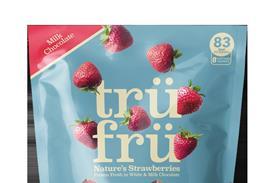
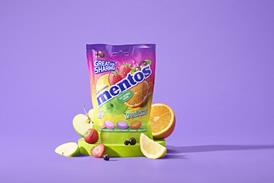









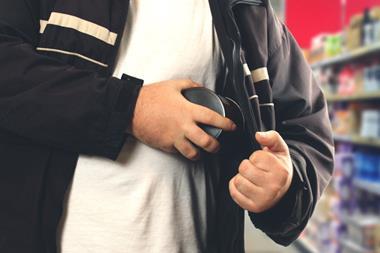


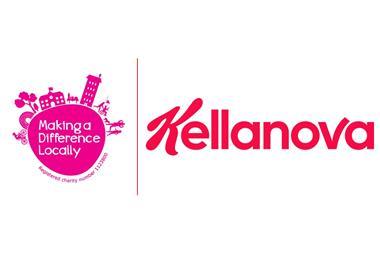
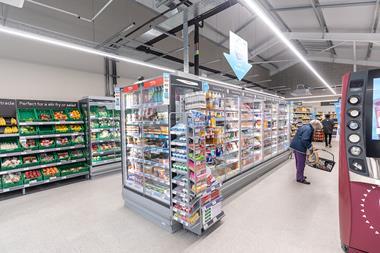
No comments yet